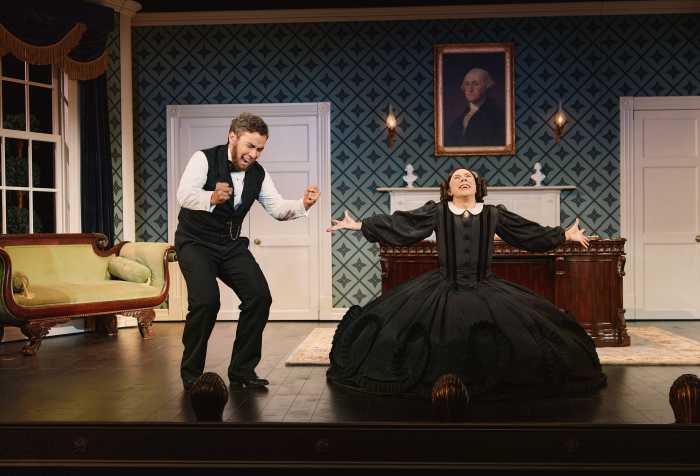
‘A Beautiful Day in the Neighborhood’
Directed by Marielle Heller
Starring Tom Hanks, Matthew Rhys, Susan Kelechi Watson, Chris Cooper
Not yet rated
Fred Rogers is having quite the cultural moment, with the sensational documentary "Won’t You Be My Neighbor?" followed one year later by "A Beautiful Day in the Neighborhood," a scripted feature.
It’s certainly not an accident that this is happening against the backdrop of this presidential administration, and the ways it often seems to stand in opposition to the values of kindness and respect that Rogers espoused on television and in every other area of his life.
There’s plenty of room for Mister Rogers today, in other words, but no one wants a redundant experience at the multiplex. Fortunately, this movie — which premiered at the Toronto Film Festival and will open in theaters on Nov. 22 — approaches his story and legacy fundamentally differently than the documentary.
Instead of opting for a conventional biographical approach, director Marielle Heller and screenwriters Michael Fitzgerald-Blue and Noah Harpster adapt the Esquire article "Can You Say … Hero?", written by journalist Tom Junod in 1998. It’s a profile of Rogers that is less about the icon and more about how spending time with him affected the author.
Here, Junod becomes Lloyd Vogel (Matthew Rhys), a cynical workaholic who has alienated himself in the office and distanced himself from his wife Andrea (Susan Kelechi Watson) and newborn son at home. When we meet him, he’s a true mess, having bottomed out in a physical brawl with his estranged father Jerry (Chris Cooper) at his sister’s wedding.
When he’s assigned to interview Rogers (Tom Hanks) for a "heroes" issue, he scoffs. He doesn’t do softball puff pieces. And yet, over the course of his conversations with this beloved, mysterious figure — a man who appears to have found a way to sublimate all negative emotions and, instead, relentlessly project optimism and compassion — the reporter starts to undergo a profound awakening.
There are multiple scenes on the set of "Mister Rogers’ Neighborhood," giving Hanks the opportunity to sing the theme song and perform as several of the recurring puppet characters. We watch as he delays production to spend an extra amount of time befriending a child, or decides that a sequence in which he fails to construct a tent might be more valuable for his audience than if he had successfully assembled it.
Hanks, perfectly cast, delivers a performance that affects the famously serene, calming demeanor but complicates it by suggesting that even Mister Rogers struggles inside. It is hard to play such a famous figure, particularly in a movie in which he is really a supporting character, and to find new levels to reach beneath the stillness. But the star does it.
All of this is filtered through Lloyd’s perspective, so the movie becomes less about Mister Rogers himself, and more about his impact on this one individual as a microcosm for the extraordinary degree to which he shaped so many lives for the better.
The most triumphant scene in the movie, and the one that establishes just how special and compassionate of a work this really is, finds Lloyd and Fred out to lunch in a Chinese restaurant. There, before eating, Fred asks Lloyd to join him in a moment of silent contemplation, where they think about all of the people whose love impacted their lives. Heller and the screenwriters make the essential choice of dropping the sound out — all the other patrons join in this moment — and the movie achieves a state of grace.





































